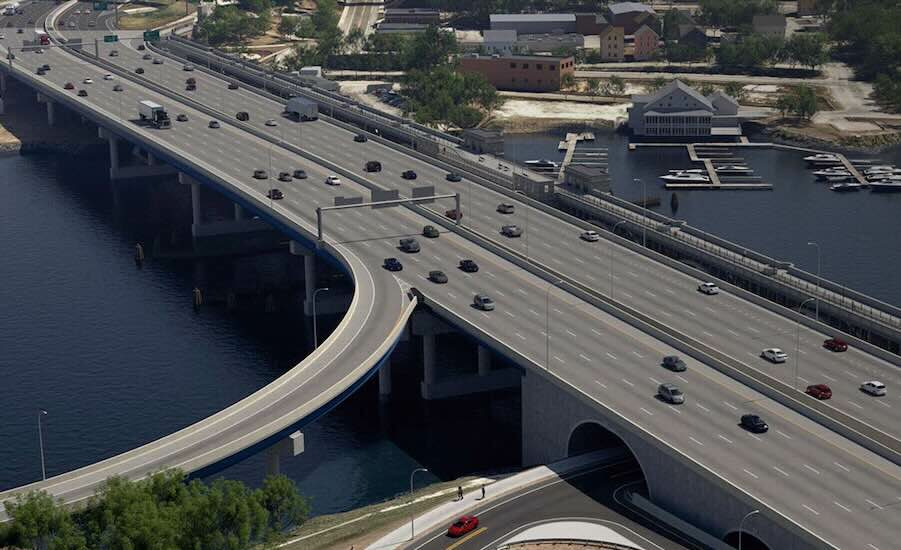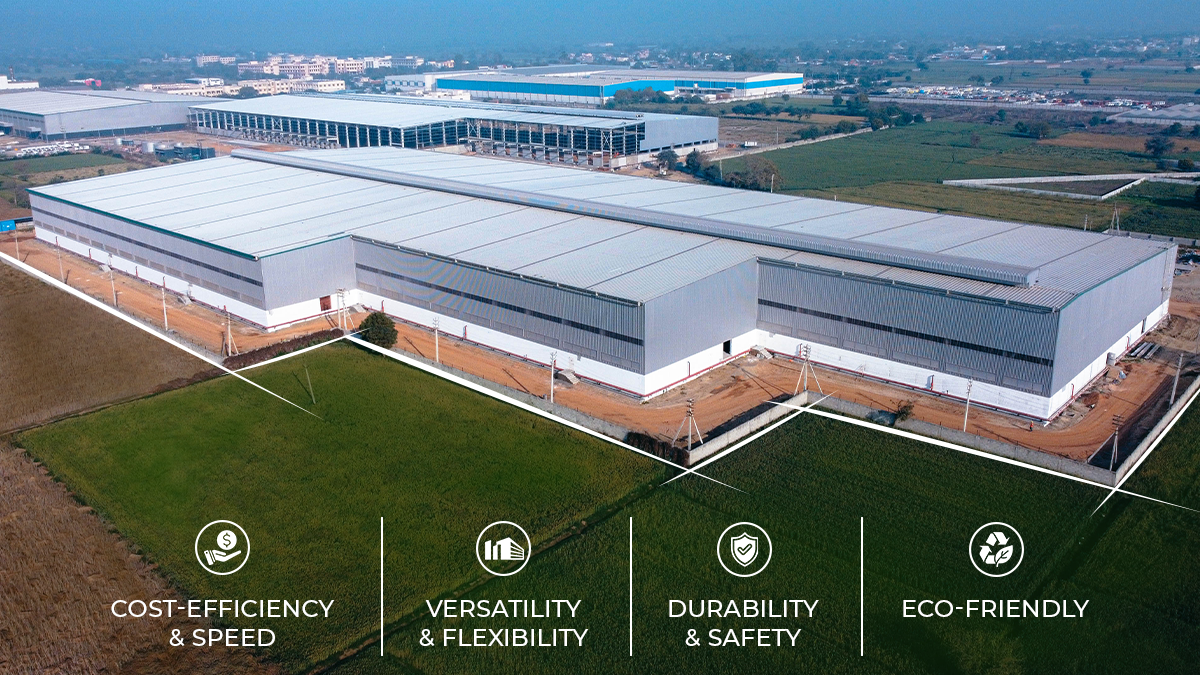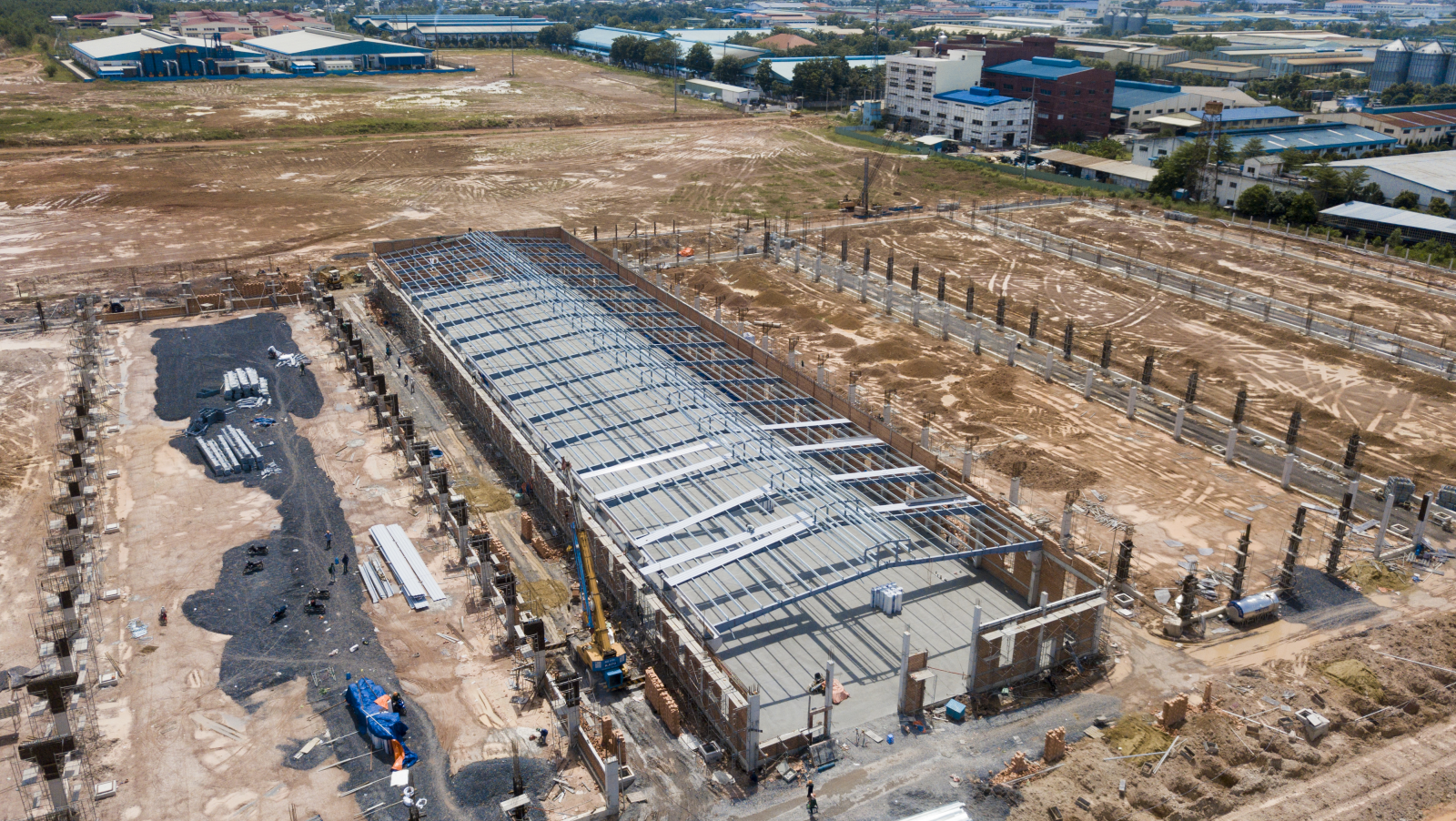
Firms Countersue RIDOT Over Washington Bridge Closure
[ad_1]

Barletta and Aetna Bridge—two of 13 companies sued by the Rhode Island Dept. of Transportation in 2024—filed a counterclaim June 12 alleging the Ocean State ignored recommendations of a detailed inspection report that detailed structural deficiencies before soliciting bids for a Providence bridge rehabilitation.
Joint venture partners Barletta and Aetna Bridge, along with VHB, landed the contract to rehabilitate the westbound Washington Bridge in 2021. The suit alleges the defendants knew or should have known of engineering and past inspection history of the 56-year-old bridge on I-195 and taken that into account “as part of their collective obligations to the state.”
The bridge linking East Providence and Providence carries about 133,000 vehicles crossing in both directions each day, according to RIDOT.
“The Rhode Island Dept. of Transportation may have averted a costly and disastrous emergency closure of the Washington Bridge in December 2023 if it had followed recommendations in a detailed 1992 inspection report, which pointed out structural deficiencies and called for advanced radiographic testing before any rehabilitation of the bridge was undertaken,” says Sallie Hofmeister, a Barletta spokeswoman.
Tim Rondeau, spokesperson for the Rhode Island Attorney General’s Office, says, “Counterclaims are to be expected in a case like this, and the state stands by the allegations in its complaint. As this is part of ongoing litigation, we have no further comment.”
Rhode Island Attorney General Peter Neronha said in a statement announcing the state’s suit that, “In the nearly nine months since the abrupt [bridge] closure, our economy has borne an immense cost, and our state has and will continue to have to expend significant resources as a result,”
The counterclaim adds that Barletta and Aetna Bridge “allege the state breached their contract and failed to act in good faith by concealing the true condition of the bridge and neglecting to conduct the appropriate testing before soliciting bids for a rehabilitation that never should have been undertaken,” Hofmeister says. “They further claim the state failed to disclose the report by engineers Lichtenstein & Associates when the state requested bids in March 2021 for the rehabilitation of the bridge.”
Hofmeister asserts that although the state knew of the bridge structural deficiencies and the need for further ground-penetrating radar testing prior to any rehabilitation plan, it never disclosed those flaws in the design guidelines that bidders were required to use as the basis for their proposals. “Those guidelines required bidders to neither retrofit nor remediate the bridge’s tie-down rods or strengthen its compromised post-tensioning system,” she says.
Instead, she added, “the state represented that the bridge could be rehabilitated and approved the joint venture’s proposal. It wasn’t until after the emergency shutdown that the advanced testing recommended in 1992 was finally conducted, finding that structural deficiencies were so widespread that the Washington Bridge was beyond repair and would have to be demolished and replaced.”
In an unrelated lawsuit, Barletta paid $11 million last month to settle a civil case involving illegal dumping of contaminated fill during construction of a Providence, R.I. highway connector project.
[ad_2]
Source link
Post a Comment
You must be logged in to post a comment.






